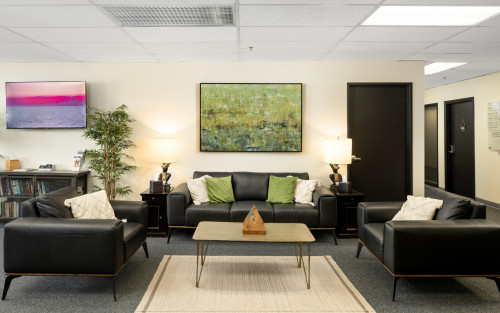
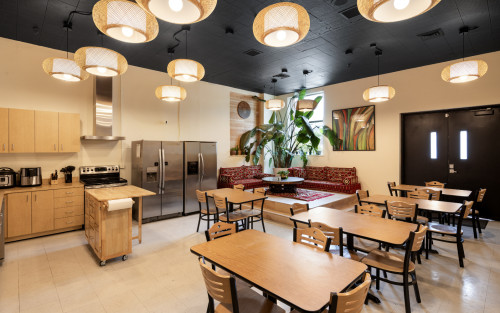
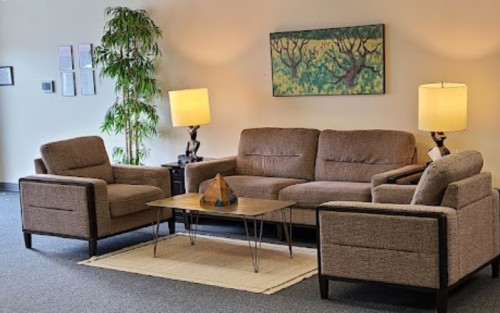



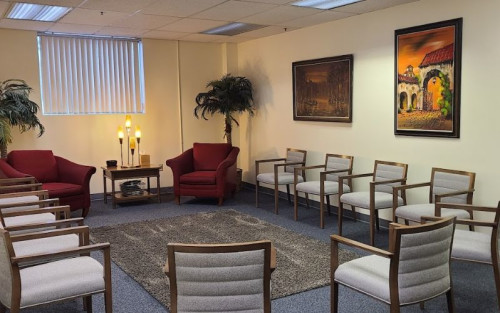
Cielo Treatment Center
Verified Center
This provider's information has been quality-checked by Recovery.com's Research Team for accuracy and completeness, including center verification through appropriate third-party organizations.
Treatment Focus
This center treats substance use disorders and co-occurring mental health conditions. Your treatment plan addresses each condition at once with personalized, compassionate care for comprehensive healing.
Primary Level of Care
Outpatient treatment offers flexible therapeutic and medical care without the need to stay overnight in a hospital or inpatient facility. Some centers offer intensive outpatient program (IOP), which falls between inpatient care and traditional outpatient service.
Treatment Focus
This center treats substance use disorders and co-occurring mental health conditions. Your treatment plan addresses each condition at once with personalized, compassionate care for comprehensive healing.
Primary Level of Care
Outpatient treatment offers flexible therapeutic and medical care without the need to stay overnight in a hospital or inpatient facility. Some centers offer intensive outpatient program (IOP), which falls between inpatient care and traditional outpatient service.
Provider's Policy
We are contracted with most insurance providers and accept out-of-network benefits with others. We do NOT accept Medicaid or Medicare. Please contact us directly for verification of your benefits. Our team is available around the clock, so please don't hesitate to reach out.
Cielo Treatment Center
Cielo Treatment Center
About Cielo Treatment Center
Cielo Treatment Center empowers people to rewrite their stories with progressive, Portland-rooted care. They provide support for individuals with addiction and co-occurring mental health disorders by offering the love, community, and spiritual connection needed to heal from substance use. They offer day treatment, intensive outpatient, outpatient, and sober living, including specialized tracks for young adults, LGBTQ+, and indigenous clients. Their individualized treatment plans address underlying factors contributing to substance use disorder such as mental illness, family dysfunction, and trauma.
Explore Evidence-Based & Holistic Therapies
Cielo Treatment Center emphasizes direct client care, offering daily check-ins with clinicians, scheduled one-on-one sessions, and consistent mentorship to support clients every step of the way. Clients have a range of evidence-based treatment and holistic therapies to incorporate into their treatment. Counseling theories include mindfulness practices rooted in Dharma, holistic recovery, LGBTQ-affirmative therapies, and 12-Step. Cielo also offers nutrition and wellness groups, recovery CrossFit and recovery yoga, and art and music therapy.
Access Flexible Care & Sober Living Support
Cielo Treatment Center offers convenient support for individuals balancing recovery with personal and professional responsibilities. Their evening IOP allows clients to receive care without disrupting work or other daytime commitments. It includes small, engaging groups, one-on-one support, and services tailored to recovery needs, including court-mandated DUI programs. Cielo partners to offer safe and supportive sober living accommodations nearby, ideal for clients in day treatment. Residents benefit from on-site managers, mentorship, life skills coaching, job search assistance, and regular drug testing to support accountability and progress.
Build Long-Term Stability with Aftercare
Cielo offers an aftercare program lasting 30 to 60 days. Clients have access to groups in the evening, in addition to certified recovery mentors and biweekly one-on-one counseling sessions.
Rediscover Joy in Oregon’s Beauty
Recovery at Cielo is not just about addressing challenges; it's also about rediscovering joy and purpose. Through various recreational endeavors, clients rejuvenate their spirits, build positive relationships, and develop essential life skills that pave the way for a fulfilling future. Cielo takes clients on weekly outdoor activities like kayaking on the Willamette River, hiking Mt. Hood, and snow tubing at an adventure park.

Highlights from the Center
Highlights
These highlights are provided by and paid for by the center.
1-on-1 Counseling
Customized Treatment Plans
Holistic Approach
Tech Friendly
Center Overview
Treatment Focus
This center treats substance use disorders and co-occurring mental health conditions. Your treatment plan addresses each condition at once with personalized, compassionate care for comprehensive healing.
Joint Commission Accredited
The Joint Commission accreditation is a voluntary, objective process that evaluates and accredits healthcare organizations (like treatment centers) based on performance standards designed to improve quality and safety for patients. To be accredited means the treatment center has been found to meet the Commission's standards for quality and safety in patient care.
Insurance Accepted
Cash Pay Rates
Estimated Cash Pay Rate
Center pricing can vary based on program and length of stay. Contact the center for more information. Recovery.com strives for price transparency so you can make an informed decision.
Meet Your Care Team

Deanna Schoppert
Lead Substance Use Disorder Counselor
CADC

Elyssa Thelin
Substance Use Disorder Counselor/Art Therapist
MA, CADCr

Gigi Goodrich
Certified Recovery Mentor
CRM

Justina Rameriz
Billing Specialist
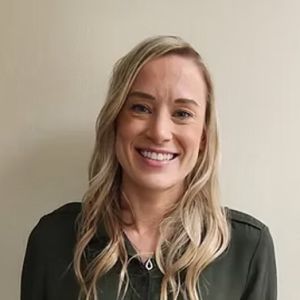
Katie O'Callaghan Estes
Administrative Director
QMHA
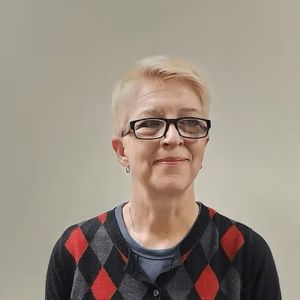
Marcella Kokinda
Clinical Director
CADC II QMHA

Laura Lefler
Administrative Coordinator
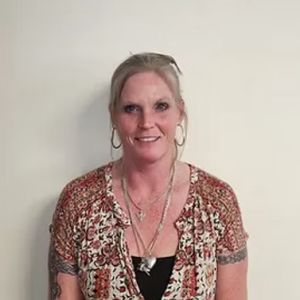
Sarah Boomhower
Mental Health Clinical Director
LCSW

Jesse Cho
Prescriber
Psych NP
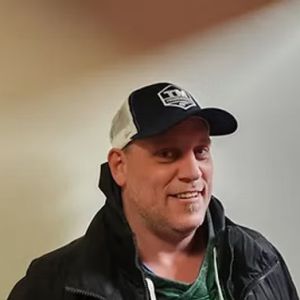
Timothy McGee
Certified Recovery Mentor
CRM
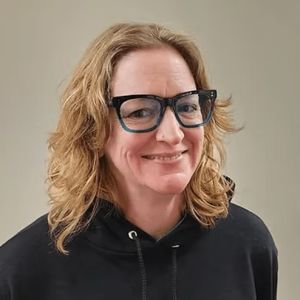
Casey Ferguson
Medical Director
MD

Isaac Salazar
Peer Supervisor
CRM II PSS PSW CADC-R
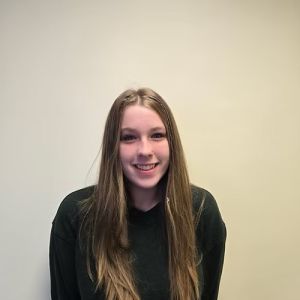
Emmalee Hintz
Front Desk Receptionist
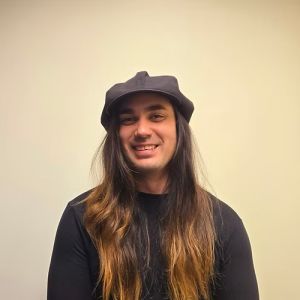
Kenny Hand
Co-Occurring Mental Health & SUD Counselor
MA CADC I
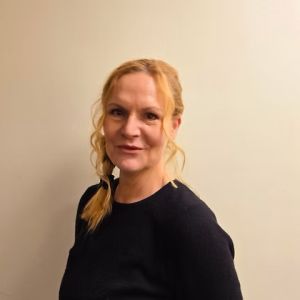
Sarka Beckett
Mental Health Therapist Intern
MA LPC Intern




Levels of Care









Your Care Options
Specializations
Alcohol
Using alcohol as a coping mechanism, or drinking excessively throughout the week, signals an alcohol use disorder.
Benzodiazepines
Benzodiazepines are prescribed to treat anxiety and sleep issues. They are highly habit forming, and their abuse can cause mood changes and poor judgement.
Cocaine
Cocaine is a stimulant with euphoric effects. Agitation, muscle ticks, psychosis, and heart issues are common symptoms of cocaine abuse.
Drug Addiction
Drug addiction is the excessive and repetitive use of substances, despite harmful consequences to a person's life, health, and relationships.
LGBTQ+
Addiction and mental illnesses in the LGBTQ+ community must be treated with an affirming, safe, and relevant approach, which many centers provide.
Opioids
Opioids produce pain-relief and euphoria, which can lead to addiction. This class of drugs includes prescribed medication and the illegal drug heroin.
Outpatient
During outpatient rehab, patients attend a structured treatment program while continuing to live at home.
Who We Treat
Older Adults
Addiction and mental health treatment caters to adults 55+ and the age-specific challenges that can come with recovery, wellness, and overall happiness.
Young Adults
Emerging adults ages 18-25 receive treatment catered to the unique challenges of early adulthood, like college, risky behaviors, and vocational struggles.
LGBTQ+
Addiction and mental illnesses in the LGBTQ+ community must be treated with an affirming, safe, and relevant approach, which many centers provide.
Men and Women
Men and women attend treatment for addiction in a co-ed setting, going to therapy groups together to share experiences, struggles, and successes.
Midlife Adults
For adults ages 40+, treatment shifts to focus on the unique challenges, blocks, and risk factors of their age group, and unites peers in a similar community.
Pregnant Women
Addiction and mental health treatment meets the clinical and psychological needs of pregnant women, ensuring they receive optimal care in all areas.
Professionals
Busy, high-ranking professionals get the personalized treatment they need with greater accommodations for work, privacy, and outside communication.
Approaches
Evidence-Based
A combination of scientifically rooted therapies and treatments make up evidence-based care, defined by their measured and proven results.
Individual Treatment
Individual care meets the needs of each patient, using personalized treatment to provide them the most relevant care and greatest chance of success.
Twelve Step
Incorporating spirituality, community, and responsibility, 12-Step philosophies prioritize the guidance of a Higher Power and a continuation of 12-Step practices.
Wellness
Wellness philosophies focus on the physical, mental, and spiritual wellness of each patient, helping them restore purpose with natural remedies.
Therapies
1-on-1 Counseling
Patient and therapist meet 1-on-1 to work through difficult emotions and behavioral challenges in a personal, private setting.
Meditation & Mindfulness
A practiced state of mind that brings patients to the present. It allows them to become fully aware of themselves, their feelings, and the present moment.
Trauma-Specific Therapy
This form of talk therapy addresses any childhood trauma at the root of a patient's current diagnosis.
Rational Emotive Behavior Therapy
A type of cognitive therapy that identifies negative self-defeating thoughts and behaviors, rewriting beliefs to be positive, empowering, and present.
Mindfulness Therapy
This ancient practice can be mental, emotional, and even spiritual. In meditation, you focus your attention on the present moment without judgement.
Adventure Therapy
This experiential approach uses the physical and emotional challenges of outdoor activities as tools for personal growth.
Attachment-Based Family Therapy
ABFT is a trauma-focused therapy that teaches you to form healthy relationships by rebuilding trust and healing attachment issues formed in childhood.
Substances We Treat
Alcohol
Using alcohol as a coping mechanism, or drinking excessively throughout the week, signals an alcohol use disorder.
Benzodiazepines
Benzodiazepines are prescribed to treat anxiety and sleep issues. They are highly habit forming, and their abuse can cause mood changes and poor judgement.
Chronic Relapse
Consistent relapse occurs repeatedly, after partial recovery from addiction. This condition requires long-term treatment.
Co-Occurring Disorders
A person with multiple mental health diagnoses, such as addiction and depression, has co-occurring disorders also called dual diagnosis.
Cocaine
Cocaine is a stimulant with euphoric effects. Agitation, muscle ticks, psychosis, and heart issues are common symptoms of cocaine abuse.
Drug Addiction
Drug addiction is the excessive and repetitive use of substances, despite harmful consequences to a person's life, health, and relationships.
Ecstasy
Ecstasy is a stimulant that causes intense euphoria and heightened awareness. Abuse of this drug can trigger depression, insomnia, and memory problems.
Heroin
Heroin is a highly addictive and illegal opioid. It can cause insomnia, collapsed veins, heart issues, and additional mental health issues.
Psychedelics
Hallucinogenic drugs—like LSD—cause euphoria and increased sensory experiences. When abused, they can lead to depression and psychosis.
Languages
Aftercare
Care Designed for Your Needs
Personal Amenities
Amenities
Special Considerations
Executive Program
Addiction and mental health treatment for executives typically involves high discretion, greater technology access, and more private, 1-on-1 care.
Gender-specific groups
Patients in gender-specific groups gain the opportunity to discuss challenges unique to their gender in a comfortable, safe setting conducive to healing.
Healthy Meals are provided
Great food meets great treatment, with providers serving healthy meals to restore nutrition, wellbeing, and health.
Activities
Yoga
Yoga is both a physical and spiritual practice. It includes a flow of movement, breathing techniques, and meditation.






